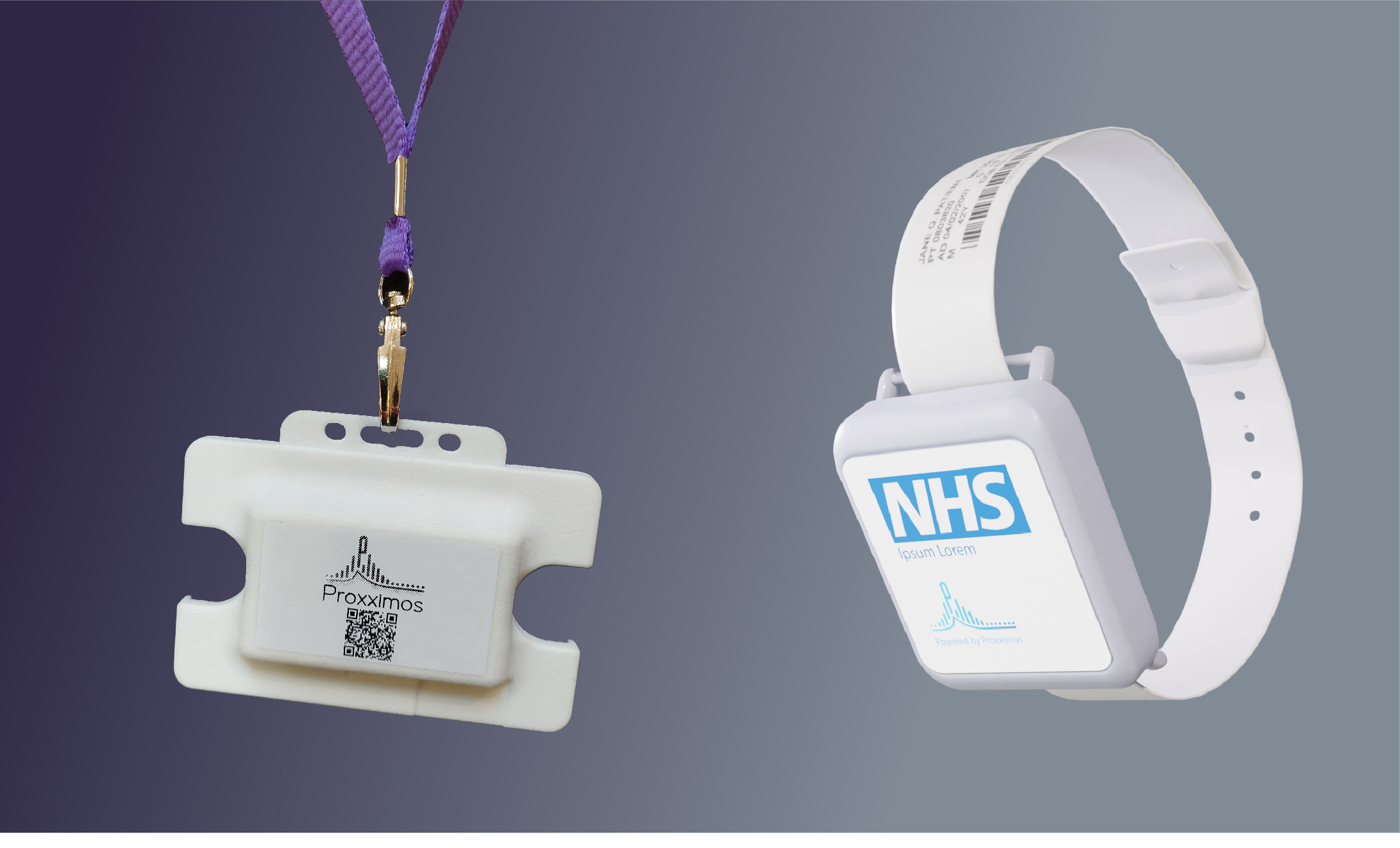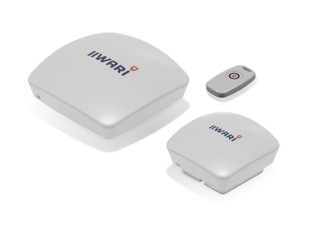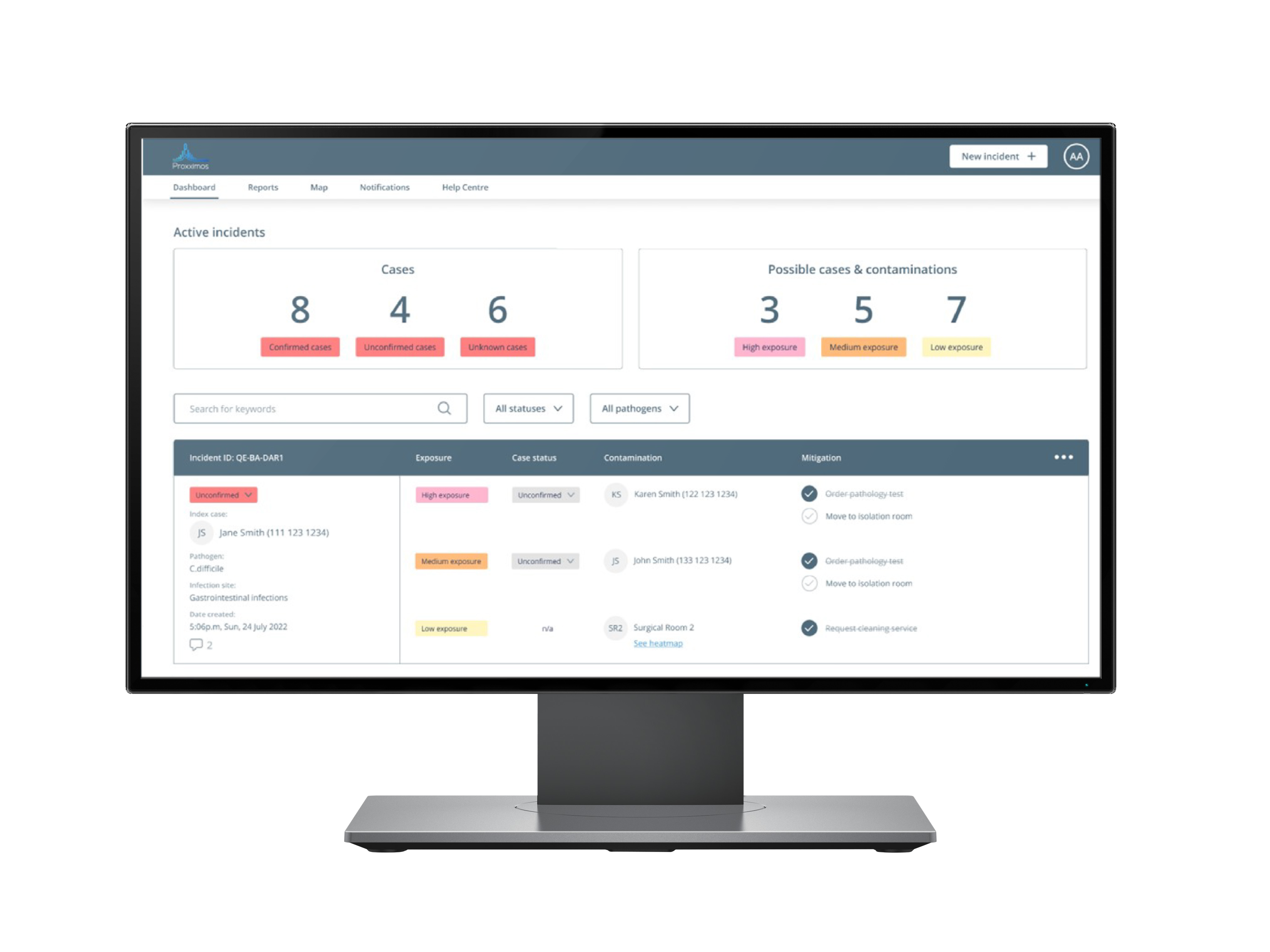Product
Proxximos’ first product is for healthcare settings

Wearables for staff and patients
Bespoke wearables have been designed and developed in collaboration our Finnish technology provider and with healthcare professionals for use by staff and patients in hospitals
High fidelity location using wearables
Pathogens spread by four means in hospitals: direct contact; indirect contact; droplets; and airborne. The wearable sensors keep track of the opportunities for pathogens to pass from one person to the next
Ergonomic and long battery life
The devices have been designed to complement existing ID pass wearing for staff, and existing patient ID tags for patients. The devices use low power radio and battery life is 2 years

Hubs
Hubs locate each wearable to with and accuracy of 25cm every 5 seconds
Ultra Wide Band
The hubs use Ultra Wide Band (UWB) to locate the wearables. This is low power radio already found on some mobile phones that is well suited to avoiding interference
Mobile phone interoperability
UWB is appearing on mobile phones and in due course this system can locate phones if they load an App. This means people would have a choice between wearable or phone
Other data
There is other data collected in hospitals that can inform infection risk (CO2 concentration for example as a proxy for quality of ventilation). Our system is design with open APIs so we can exploit this where it is available

WebApp for healthcare users
A WebApp interface enables healthcare workers to conduct contact tracing automatically. When a new infection is discovered, the name of the infected patient or staff member is entered. The WebApp instantly produces the list of people who have been exposed, or places that maybe contaminated
The healthcare worker can see details of the relevant encounters so they can apply their judgement on the best infection control mitigation
Contact UsFeatures
Designed with and for healthcare workers and patients/public
Ergonomic
Designed to avoid the need for addition wearables. It replaces the pass carrier for staff for example
Long battery life
Designed for a battery life exceeding two years
Sustainable
Developed using medical grade polymers to enable cleaning and re-use rather than disposal. The wearables are renewed after two years as part of the service, with plastics recycled
Contribution to net zero
Avoids the use of consumables caused by high levels of infection. Avoids family member visits to hospital to see overstaying patients
Self monitoring
WebApp can see if devices have dropped off the system
Privacy by design
Data secured in cloud service provided infrastructures. Data fully anonymised for long term research retention purposes
Expected Benefits
In-year cashable savings for NHS Trusts and increased elective care capacity
-
Patient Outcomes
25% fewer infections means fewer patient deaths and other poor patient outcomes caused by Hospital Acquired Infections
-
In-year Savings
Few infections means 1% in-year cashable savings to Trust budget - immediate and repeating cost saving as no longer treating patients for infections. Longer term it means less hospital capacity is needed and a 5% saving on the overall NHS budget
-
Elective Capacity
5% increase in overall capacity - with fewer overstaying patients, the hospital elective capacity increases substantially
-
Clinical Time Saving
90% of time saved compared to manual contact tracing - 30 hours of clinical time saved per infection case requiring tracing
-
Infection Prevention
Insights from the data to further inform infection prevention
-
Pandemic Defence
Protects a hospital from the next pandemic or local epidemic
Get In Touch
Type your message here
"*" indicates required fields